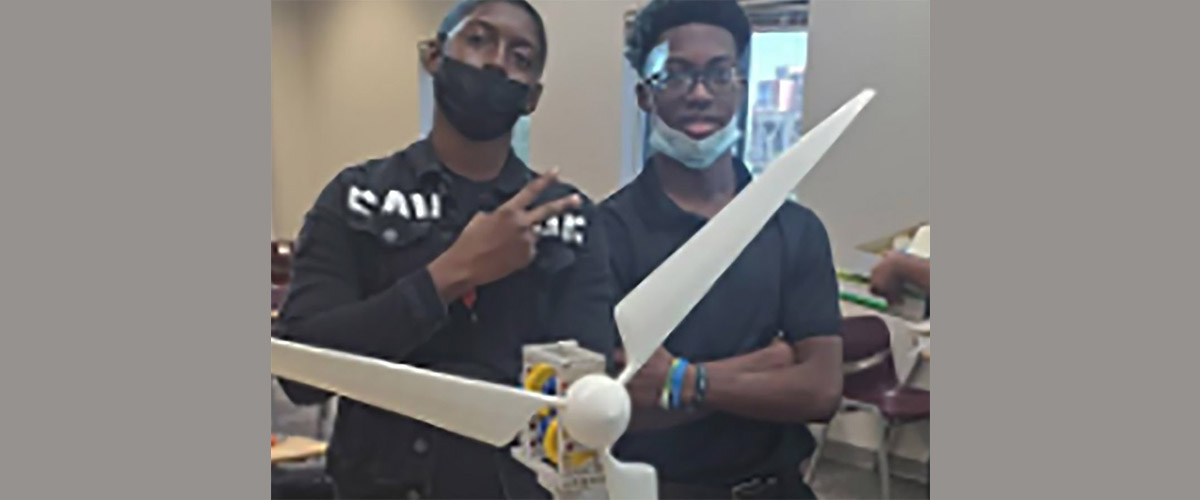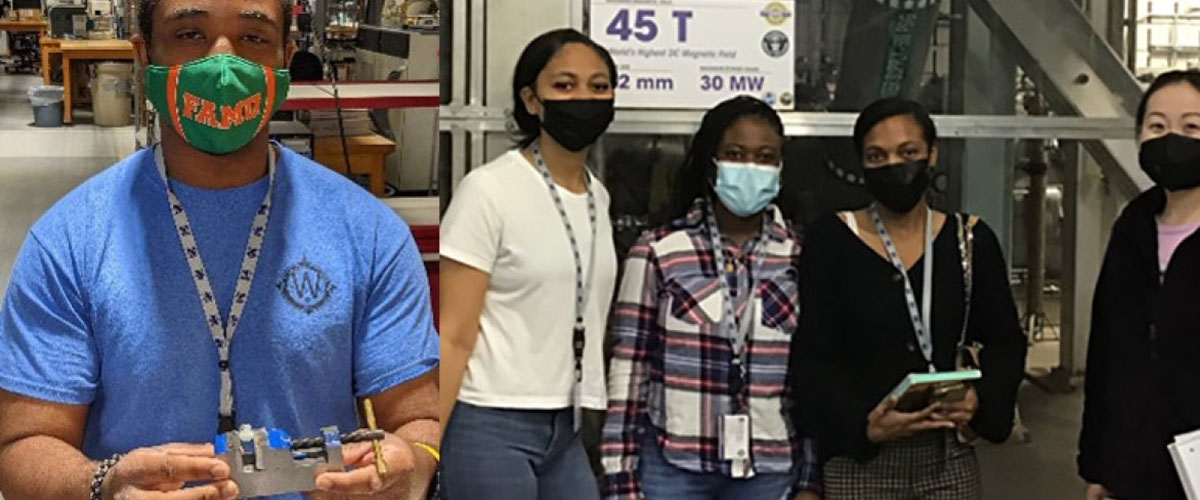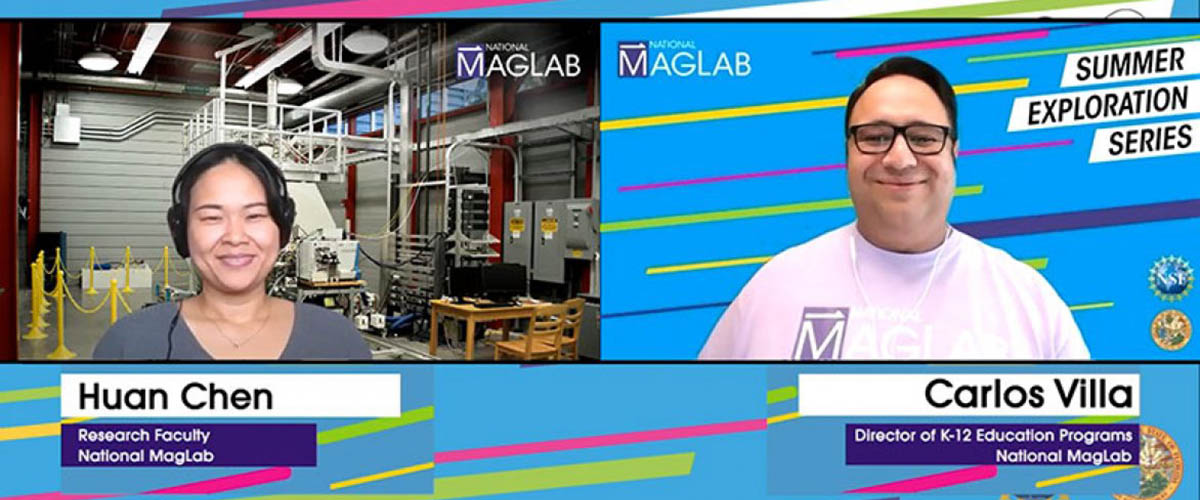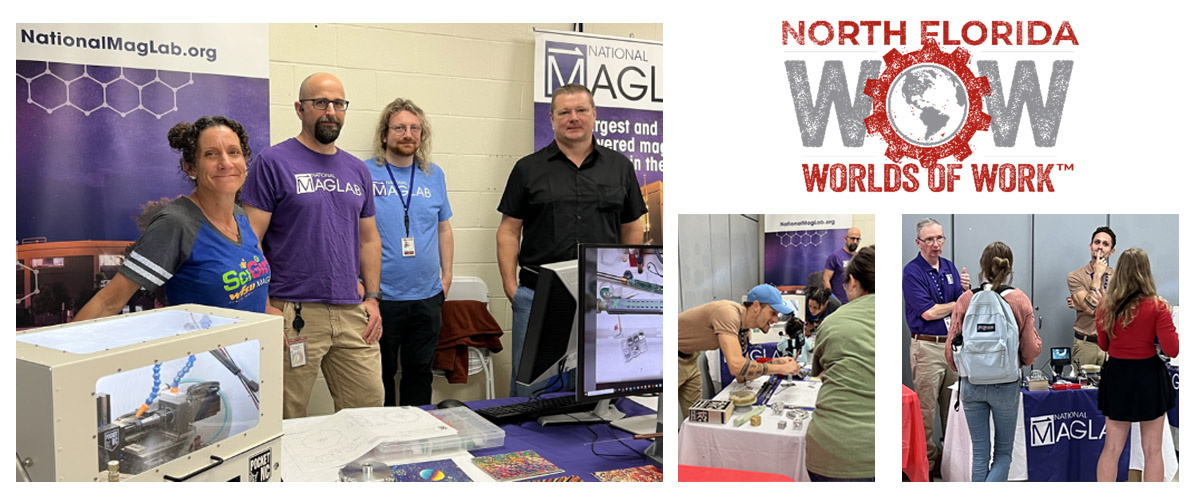What is the event?
Florida State University's CROP welcomed students from three local Title-1 Schools ‒ schools that feature high school and middle school student populations that exceed 88% students of color ‒ to participate in an immersive residential summer program. To increase the STEM curriculum for their students, CROP teamed with the MagLab's Center for Integrating Research and Learning (CIRL) to offer our hallmark "Camp TESLA" (Technology, Engineering, and Science in a Laboratory Atmosphere). The TESLA curriculum includes hands-on activities in electricity, magnetism, chemical reactions, genetics, astronomy, and geology. In addition, CIRL Director of K-12 Programs, Carlos R. Villa, led a workshop for the CROP educators to guide them through the curriculum activities before the camp and to answer any questions that arose during the camp.
Why is this important?
Black/African-American and Latinx peoples are underrepresented in many fields of science, with these students being awarded fewer than 15% of the bachelor’s degrees in physics [1]. Operated by FSU's Center for Academic Retention and Enhancement (CARE), CROP seeks to improve college enrollment for underrepresented populations. CIRL’s work with the CARE program to serve a community of underrepresented students [2] is crucial to help connecting the students to STEM career options.
Who was involved?
C.R. Villa1, I. Williams2; C. Jones2; R.M. Hughes1
1Center for Integrating Research and Learning (CIRL) at the MagLab, 2Florida State University Center for Academic Retention and Enhancement (CARE)
Why did they need the MagLab?
The success of the MagLab's summer camps, including Camp TESLA, is due in large part to the expertise of our education staff who develop relevant and interactive activities that engage young people with information about exciting research at the MagLab. By partnering with CROP this summer, the MagLab was able to reach a more diverse audience of students thereby further supporting our mission to build a diverse STEM workforce.
Funding
This research was funded by the following grants: G.S. Boebinger (NSF DMR-1157490, NSF DMR-1644779); I. Williams (FL DOE-371-95010-1S001
For more information, contact Carlos Villa.






